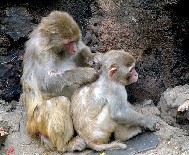 LISTEN TO THE TEXT
LISTEN TO THE TEXT 
Hi friends, we have learned what to call one’s relatives -- Uncle and Aunt―over the last two weeks. Today I would like to show you how to express the different meanings of the word "Cousin" in Chinese. Ok?
NEW SENTENCES ABOUT ONE'S RELATIVES:
No. 114: -- 在英语中,"Cousin" 的意思是堂兄、堂哥/堂弟;堂姐/堂妹;表兄、表哥/表弟;表姐和表妹。 -- "Cousin" means child of one's aunt or uncle in English.
No. 115: -- 在汉语中,父亲的兄弟的儿子被称为堂兄、堂哥或堂弟。 -- The son of one's father's brother is called "tangxiong" ("tangge")or "tangdi" in Chinese.
No.116: -- 父亲的兄弟的女儿被称为堂姐或堂妹。 -- The daughter of one's father's brother is called "tangjie"or "tangmei".
No. 117: -- 母亲的姐妹或兄弟的儿子被称为表兄、表哥或表弟。 -- The son of one's mother's sister or brother is called "biaoxiong" ("biao ge")or "biaodi".
No.118: -- 母亲的姐妹或兄弟的女儿被称为表姐或表妹。 -- The daughter of one's mother's sister or brother is called "biaojie"or "biaomei".
Usually, the elder one is "xiong","ge" and "jie", the younger one is "di" and "mei"
NEW WORDS LISTEN TO THE TEXT
LISTEN TO THE TEXT:
Please click on any Chinese character that you need help with to see its Chinese pinyin, pronunciation and meaning and then read it after me.
Chinese Language Customs 04:
In English, the word “cousin” can refer to many different relatives. In Chinese, these relatives can not all be referred to using the same word, Each one has its own words:
1. The son of one's mother's sister or brother: biaoxiong, biao ge or biaodi.
2. The daughter of one'smother's sister or brother: biaojie or biaomei.
3. The son of one's father's brother: tangxiong or tangdi.
4. The daughter of one's father's brother: tangjie or tangmei
I just hope this is at least a little help to you in your Chinese learning. :-)

If you have any questions, comments or suggestions, please write to
shirley@ebridge.cn , or
shirleyz004@yahoo.com, You are also welcome to publish your opinions in
Forum For Friends. :-)
--Shirley Written and Recorded On Sun, April 2, 2006
 LISTEN TO THE TEXT
LISTEN TO THE TEXT  Hi friends, we have learned what to call one’s relatives -- Uncle and Aunt―over the last two weeks. Today I would like to show you how to express the different meanings of the word "Cousin" in Chinese. Ok?
Hi friends, we have learned what to call one’s relatives -- Uncle and Aunt―over the last two weeks. Today I would like to show you how to express the different meanings of the word "Cousin" in Chinese. Ok?  LISTEN TO THE TEXT:
LISTEN TO THE TEXT: If you have any questions, comments or suggestions, please write to shirley@ebridge.cn , or shirleyz004@yahoo.com, You are also welcome to publish your opinions in Forum For Friends. :-)
If you have any questions, comments or suggestions, please write to shirley@ebridge.cn , or shirleyz004@yahoo.com, You are also welcome to publish your opinions in Forum For Friends. :-)